Demystifying FinCEN’s BOI Reporting Requirements Under the Corporate Transparency Act
In an era where financial transparency is paramount, understanding the nuances of filing Beneficial Ownership Information Reports with the Financial Crimes Enforcement Network (“FinCEN”) in the United States is crucial for many businesses. This article aims to demystify the FinCEN’s BOI Reporting (“BOIR”) Requirements under the Corporate Transparency Act (“CTA”), offering a guide to assist in compliance with FinCEN’s regulations.
Understanding the Requirement
Before delving into the specifics, it’s essential to determine whether your business is required to file a Beneficial Ownership Report with FinCEN, i.e., a reporting company. FinCEN identities two types of reporting companies:
- Domestic reporting companies such as corporations, LLCs, and any other entities created by the filing of a document with a secretary of state or any similar office in the United States.
- Foreign reporting companies are entities (including corporations and LLCs) formed under the law of a foreign country that have registered to do business in the United States by the filing of a document with a secretary of state or any similar office.
While there are some exemptions (23 exemptions on FinCEN), companies should carefully examine the qualifying criteria.
Identifying Beneficial Owners
The core of this process involves identifying the beneficial owners of your entity. These are individuals who, directly or indirectly, own a significant portion (usually 25% or more) of the entity’s equity interests or hold significant control or influence over the company’s operations. Accurately determining who these individuals are forms the foundation of your report.
Gathering Essential Information
Once you’ve identified the beneficial owners, the next step is collecting their detailed information. This includes names, dates of birth, addresses, and identification numbers (such as Social Security Numbers for U.S. persons or passport numbers for foreigners). Accuracy in this step is crucial to avoid any compliance issues.
Utilizing BOI E-Filing System
FinCEN has streamlined the reporting process through an electronic filing system, the BOI E-Filing System. Accessing this system is your gateway to submitting the required information. The system is designed to be user-friendly and secure, ensuring that sensitive data is handled appropriately.
Completing the BOIR
It’s imperative to fill out the information accurately, ensuring that all details about the beneficial owners are correctly entered. Any inaccuracies can lead to compliance issues.
Submitting Your Report
After completing the BOIR, it’s advisable to keep a copy of the filed report for your records. This submission should be treated with the utmost seriousness, as it forms a crucial part of your entity’s compliance record.
Adhering to Updating Requirements
While there is no annual reporting requirement, after reporting companies file an initial BOIR, companies must update or correct BOIRs as needed.
Record Maintenance
Maintaining meticulous records of your filings and any supporting documents is essential for compliance. These records are not only crucial for internal tracking but may also be required for regulatory reviews or audits.
Understanding the Stakes
Non-compliance with FinCEN’s reporting requirements can lead to significant penalties. It’s vital to understand the gravity of these regulations and the potential repercussions of failing to comply.
Seeking Professional Guidance
Given the seriousness of FinCEN’s BOIR compliance, seeking advice from professionals is recommended. This guidance can prove invaluable in navigating the intricacies of FinCEN’s requirements and ensuring your business remains in good standing.
Conclusion
Filing a Beneficial Ownership Information Report with FinCEN is a critical compliance requirement for many businesses in the United States. By reviewing FinCEN requirements and seeking professional advice, entities can ensure they meet their legal obligations, thereby contributing to the broader goal of financial transparency and integrity in the business world.
*All information on this website or in the workshops is for educational purposes only and the information provided is general in nature. None of the information published on this website or used in the workshops are to be taken as specific legal advice. Use of this website or participation in a workshop does not create an attorney client relationship between you and the Escamilla Law Office. For legal advice, contact a licensed attorney in your state.
TESTIMONIALS
Witness Our Impact Through Our Clients
SA-based Services Company
I can confidently say that the Escamilla Law Office if my go to firm now. Their expertise in drafting our services contracts along with a genuine dedication to our businesses success made all the difference. Every business owner needs an attorney like Rick by their side.
Rob P.
Local Retail Company
Working with the Escamilla Law Office helped me identify risks in my business. Their expertise proved invaluable, and turn around time for documents was impressive. I highly recommend them to any business seeking top-notch legal guidance.
Scott D.
Manufacturing Company
Drafting and negotiating contracts became a breeze with [Escamilla Law Office] on our side. Their unparalleled expertise in contract law ensured our interests were always protected and identified holes in our old contracts. A true asset for any business in need of solid contractual guidance.
Rosa B.
Professional Services Company
Mr. Escamilla's guidance on our employment handbook was invaluable. His insights into employment issues ensured we stayed compliant and fostered a positive work environment. His expertise has not only built trust with our team but positively affected our bottom-line.
David Z.
CONTACT US
Were here to help you navigate the legal landscape
HOURS
Mon 09:00 am – 05:00 pm
Tue 09:00 am – 05:00 pm
Wed 09:00 am – 05:00 pm
Thu 09:00 am – 05:00 pm
Fri 09:00 am – 05:00 pm
Sat & Sun by Appointment
Get A Free Consulatation
We understand that legal issues can be stressful and overwhelming. That’s why our attorneys are here to provide you with the guidance and support you need. Contact us today to learn more about how we can help.

